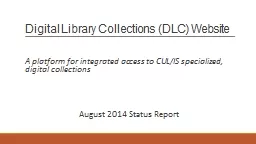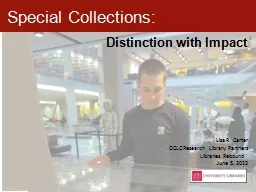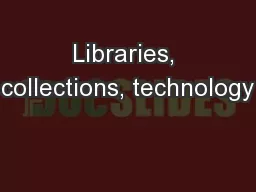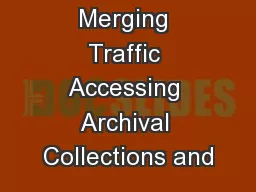PPT-Making Library Collections Discoverable on the Web
Author : tatiana-dople | Published Date : 2016-03-25
Axel Kaschte Product Strategy Director EMEA OCLC 04 July 2015 ICSTI Workshops Hannover Globalization Global Library Network Global Information Network Explain
Presentation Embed Code
Download Presentation
Download Presentation The PPT/PDF document "Making Library Collections Discoverable ..." is the property of its rightful owner. Permission is granted to download and print the materials on this website for personal, non-commercial use only, and to display it on your personal computer provided you do not modify the materials and that you retain all copyright notices contained in the materials. By downloading content from our website, you accept the terms of this agreement.
Making Library Collections Discoverable on the Web: Transcript
Download Rules Of Document
"Making Library Collections Discoverable on the Web"The content belongs to its owner. You may download and print it for personal use, without modification, and keep all copyright notices. By downloading, you agree to these terms.
Related Documents














